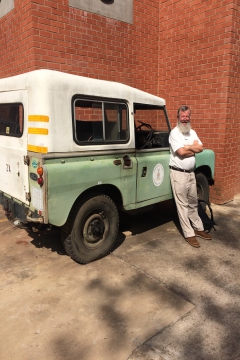Mission
| To undertake contract research which serves the South African industry and the public sector through academic research, demonstration and implementation of water and waste water management through a sustainability approach. History
The Pollution Research Group emerged in the late 1960s as an outcome of two newly formed research groups focused on water resources and the environment. At this time, there was growing realization regarding the critical importance of water for development, and the negative effects of industrial effluents and waste on the environment.
In 1969, Professor Ted Woodburn, the Head of Chemical Engineering at the University of Natal met with Cedric Graham, of Feltex Textiles and Member of the CSIR Council, to discuss the strategies for tackling environmental problems associated with the chemical industry. They agreed that chemical engineering principles provided the best approach and established a research centre to conduct research on the textile industry, with the involvement of Roy Turnbull from Feltex.
Simultaneously, Dr Stander formed the Water Research Commission (WRC), with the intention of funding research to investigate water resources in South Africa. He recruited Dr Ray Groves from the UK to head a research group focused on closed loop recycling of water, chemicals and energy in the textile industry. African Explosives & Chemical Industries also expressed interest in this area of research and provided funding and seconded Dr Ferdi Neytzell-de Wilde, who went to work at the University of Natal.
| | 
| |
In 1971, the two research organisations combined to form the Pollution Research Group (PRG). Prof Chris Buckley first joined the PRG in 1972, and became the head of the Group in 1986.
Since the beginnings of the Group, the research focus has been on water quality, closed loop recycling and the reclamation of valuable resources (water, chemicals and energy), and wastewater management. The research focus has since expanded to include innovative sanitation technologies and the development of techniques for the characterisation of various excreta streams.